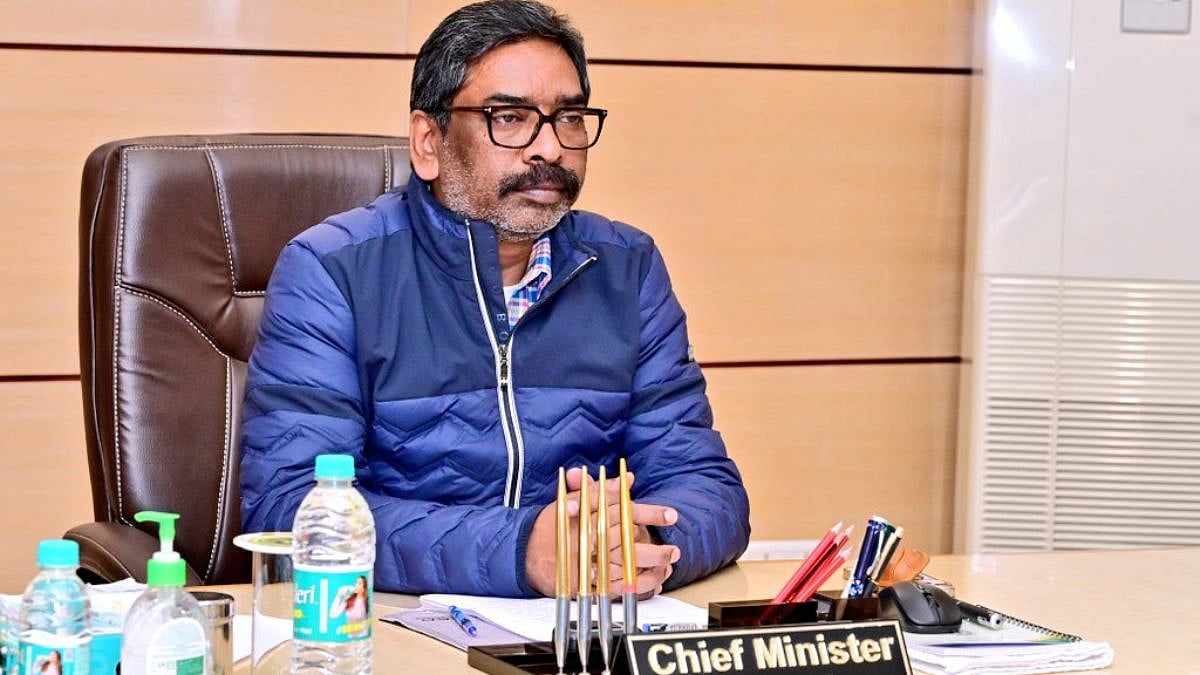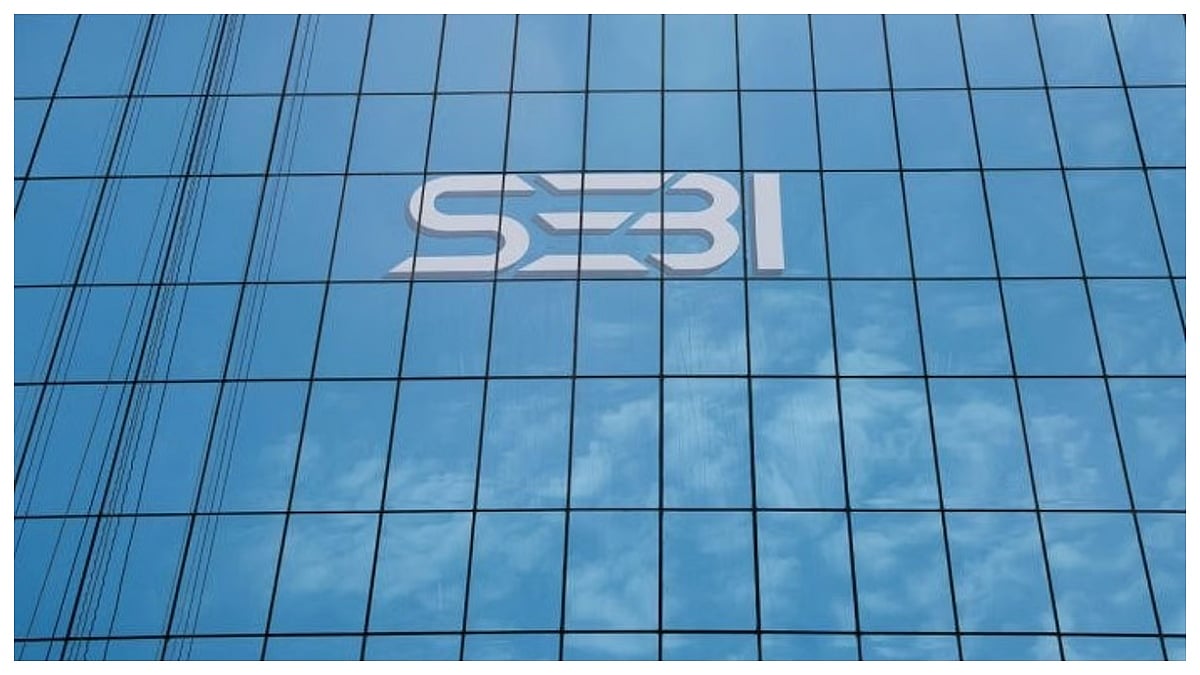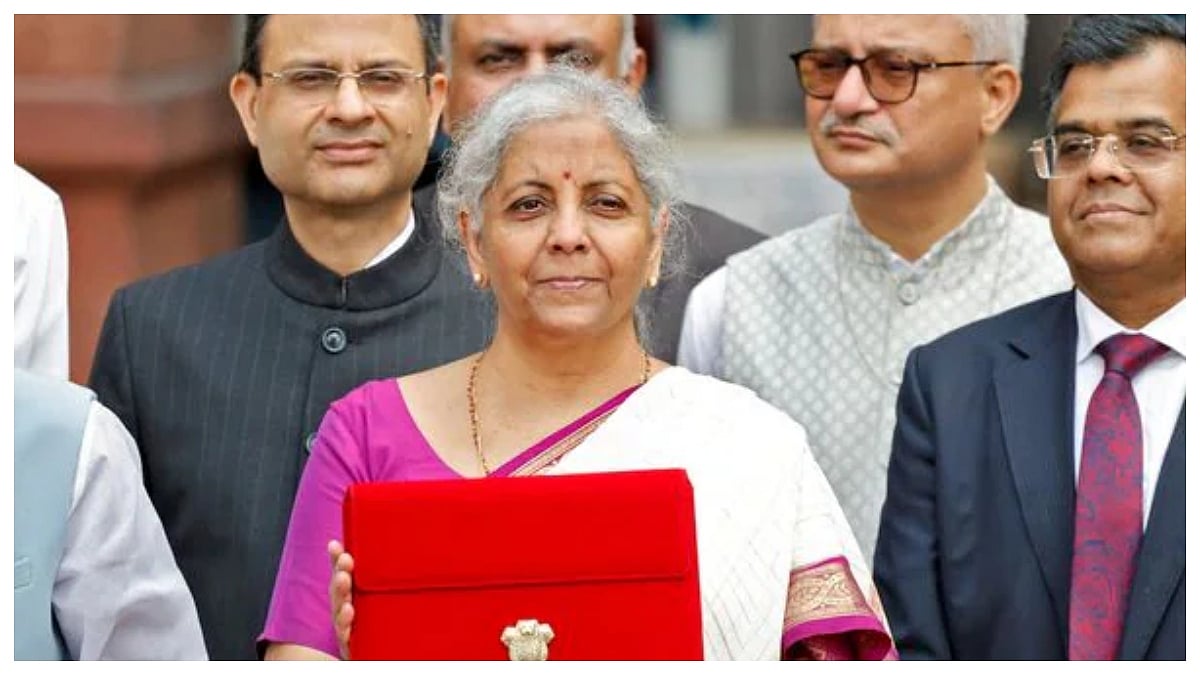Last year, to address the COVID-19 exigencies, the education budget was reduced. It is critical to increase the allocation to the education budget and find out a way to reduce the increased inequity in access to education, said firms in the education space.
Here's their wish list:
Aakash Chaudhry, Managing Director, Aakash Educational Services Limited (AESL)
With the Union Budget 2022-23 approaching, the young generation has high expectations from the Government especially in four segments – Education & Skill Development, better infrastructure, enhanced employment opportunities and common man's safety and security. We expect there to be a great amount of focus on online education and its infrastructure, especially in the Tier 2,3 cities, in the Budget. The government should announce an attractive stimulus package and provisions for the education industry to bridge the glaring gap between urban and rural populations. The Government also needs to support telecom companies so that they develop better infrastructure, internet connectivity, access to modern devices, ensuring last-mile delivery, quality guidance to the underserved who have been left behind owing to the digital divide.
Abhimanyu Saxena, Co-Founder-InterviewBit & Scaler--online tech-versity
While the transition to an online mode of education may have been relatively seamless for those with means and situated in metros and tier I cities, those less privileged struggled to keep pace. With the rollout of 5G, the government will also need to ensure adequate 4G coverage is made available to learners across demographics. Therefore, it would be prudent in the upcoming Budget if the government allocates sufficient funds to improve internet infrastructure, especially in smaller cities, to facilitate learning and upskilling among aspirants.
Achin Bhattacharyya, CEO & Founder, Notebook - after-school digital learning portal
In Budget 2022, we expect an increase in allocation towards education. We need to invest heavily in teachers training and workshops. Taking into account the current scenario of education in the country, the need of the hour is to invest heavily in Research Infrastructure in the country to stop brain drain. Looking at the cost of education in the country, the Goods and Service Tax (GST) on educational services should be reduced from 18 percent to 5 percent. Long term tax exemption and funding support to ed-tech firms will go a long way towards ensuring that the sector is able to attract and retain quality talent.
Anil Nagar, Founder and CEO atAdda247
The companies in the startup ecosystem will play a significant role in transforming the country’s image. The EdTech industry has flourished at an accelerated rate as it broke new territory and entered tier 3 and 4 cities of the country. It will play a major role in educating our workforce for a better tomorrow. This is possible only if we make online education affordable to all. The Government should support this through a lower GST, while focusing on creating a strong digital infrastructure to improve the quality and experience of online education for students in cities as well as remote areas. The government should also forge alliances with Edtech companies to accelerate the learning outcomes with the help of cutting-edge technologies in the education ecosystem.
Amit Agarwal, Founder and CEO, OckyPocky, edtech firm
Now it’s time to focus on investing in Bharat’s intellectual capital from non metro cities. There is a growing need for the government to subsidize the middle class, who constitute the majority of Bharat, to claim tax exemption on their ed-tech spending under section 80C. Furthermore, an extension of the time limit to qualify for capital gains tax exemption for early-stage investors or micro funds with a size of less than $25 million by investing in startups would result in more capital being made accessible to emerging startups. We hope that the government considers extending such time limits indefinitely in the coming years to have a sustainable support mechanism around startups, similar to what other countries have done.
Ankit Arora, Founding Director, Saarthi Education-new-age non-profit organization
While mindlessly opening up schools might not be the best idea, there are several steps the government must take. These include opening schools in batches while following COVID-appropriate behaviour, setting up protocols for children in normal times and times when the wave is climbing, creating a community-focused approach by appointing community volunteers who can ensure learning continues while schools are shut or run at limited capacity. All of this will require budget and resources - resources to be mobilised at the community level, training teachers to follow COVID appropriate behaviour, equipping schools to follow safety protocols and making children and parents feel safe. The government has a golden chance to increase the Education budget and set aside a hefty chunk to focus on school re-openings. A part of this extra budget should also be used to run remediation programmes for children who have lost their learning levels and need to come up to speed with their grade levels. This means engaging on-profit organisations in providing offline and digital resources to both, the teachers and children.
Awal Madaan, CEO and Founder, AwalEnglish.com-learning platform
I am expecting the Government of India to increase the expenditure on education in this year’s Union budget. This will help make digital education accessible to the rural sectors by ensuring the availability of high-speed internet connectivity, laptops, and smartphones, etc.--either through programs executed directly by the government or through the Public-Private Partnership (PPP) model.
Brijesh Kohli, Director, Xebia Academy-IT consultancy
It is essential for the government to make ed-tech tools available across the country. Subsidies, or private partnerships, can be a solution to this problem and should be highlighted in Budget, 2022. To reduce the cost of education for learners, the Budget should consider bringing down tax rates. This will encourage enrolments and discourage dropouts from institutions. Ed-tech enterprises, which are the future of education, continue to pay GST at 18 percent unlike conventional schools that have been excluded from GST. The government should provide aid and develop partnerships to ed-tech.
Charu Noheria, Co-Founder & COO, Practically-an experiential learning app for STEM.
The much-anticipated Union Budget comes at a time when we are introducing necessary reforms in the EdTech space. Having a central body to regulate best practices in the education and EdTech space will be largely beneficial for the consumers. Ideally, the Budget this year should consider important factors such as stronger adoption of the blended learning model and investment in a stronger digital infrastructure beyond Tier 1 cities as well. Digitization is expected to be an effective solution in bridging the literacy gap for our country. Additionally, for educational institutions and courses the revision of the 18 percent GST slab will be largely beneficial in offering more conducive rates or fees to students. btedly be one of the strongest countries in the world.
Cledwyn Fernandez, Faculty Associate,T A Pai Management Institute, Manipal
India has gained a large market in the ed-tech space. It is expected that the government pumps more money into this sector by providing greater regulation and improving capacity. It is also expected that the government reduces the GST in this sector to make room for greater output.
Deepthi Ravula, CEO, WE HUB
In last year's budget, many factors essential for the economic recovery were addressed. We believe that along with loan moratorium relaxations which were beneficial to an extent, more upfront financial support for Nano, SME entities would be helpful. Any provision for supporting the immediate short term working capital needs of businesses would be helpful. Many sectors which were previously overlooked but now are ramping up such as Health and Wellness, Services Industry , Tourism which usually have a large concentration of women, would need to be provided with support mechanisms & additional investment opportunities which would lead to formalisation, upskilling and rise in job opportunities on the whole.
Divyesh Sindhwaad, Regional Vice President, Skillsoft
The new normal of operations for companies now depend on their adaptability to the dynamic market landscape, remote business operations, and team management via digital communication platforms. Given the rapid rise of new-age digital technologies, including Artificial Intelligence, IoT, Machine Learning, Cloud Computing, and Big Data, Indian businesses must evolve with the changing times by upskilling their workforce, something that will also strengthen their skill sets and job security in today's skill-driven economy.
Dhuwarakha Sriram, Chief of Generation Unlimited (YuWaah) and Youth Development and Partnerships at UNICEF
As the pandemic has resulted in a higher pace of technological advances and rapid shift to online learning, addressing digital inequality and supporting young people to gain relevant skills of today's job market and youth entrepreneurship opportunities should be top priorities for the upcoming Union budget 2022. In addition, focus should also be on supporting the most marginalized and vulnerable young people, such as young women and people with disabilities, so that no young person is left behind. Collaboration amongst young people, the public sector, private sector, civil society, and academia is essential to address the systemic challenges that keep young people from reaching their full potential.
Diwakar Chittora, CEO and Founder, IntelliPaat-online professional training provider.
Last year, the Budget for the education sector was slashed by 6 percent and the funds were rerouted towards healthcare. We expect that it will increase this year. The pandemic has had a huge impact on the education sector as well and even though NEP 2020 did give online learning a push, there is still a huge digital divide. Funds need to be allocated to overcome this and make sure the digital infrastructure needs are met. The EdTech sector is still struggling with the 18 percent GST slab, and we look forward to it being reduced to 5 percent as this will help in creating affordability for quality education that will eventually lead to higher employability.
Dr. Debashis Sanyal, Director - Great Lakes Institute of Management, Gurgaon
The government should invest more in online education models, considering that blended learning remains the way forward. It should consider reducing interest on education loan to help students to lessen the financial burden of students aspiring for higher education, but are reeling under economic stress in this unusual situation. The Indirect Tax exemption on auxiliary services ( rent , food contract, housekeeping, security, transport services) for higher education should be reinstated. Any form of relaxation in GST will be a great move to ease the current burden.
Dr Manoj Singh, CEO Of RUBIKA India
National Education Policy, 2020 (NEP) demonstrated commitment to the educational reforms and reaffirmed the recommendation of increasing public investment on education to 6 percent of GDP as recommended earlier in NEP in 1968.This will be a welcomed move but budgetary allocation merits detailing and attention. The Budget should prioritize funding for R&D in both public and private institutions. The Cabinet is expected to make sufficient amendments to strengthen the current learning ecosystem by bridging the digital divide through appropriate infrastructural developments.
Dr Mona Lisa Bal, Chairperson, KiiT International School
It is essential that we take measures to guarantee that education is not put on hold and adapt our education system, pedagogies, and assessments accordingly. Upskilling of teachers is, therefore, more important than ever now. A cut in interest rates on education loans is also required so that students aspiring for higher education are not financially burdened. Implementation of NEP 2020 has been slow, and the upcoming Budget needs to focus on this. Budgetary allocations need to be made for faster implementation of NEP 2020 which has the potential to change our education system for the better. 6 – 10 percent of the GDP should be allocated towards education. This would lead to a healthy start in the further progress to build a stronger foundation. Opening FDI into education would be helpful in further expansion of technological advancements.
Dr Pankaj Sharma, Director, JK Lakshmipat University
In this Budget, the Government should announce multiple schemes to enhance better Internet connectivity infrastructure across the nation so that last-mile connectivity can be ensured and access to affordable 5G devices. Education curriculum in the higher education institutes should be job-ready so that drop-out rates can be curtailed. If we see the education expenditure, India spends only 4.6 percent of its total GDP and ranks 62nd in total public expenditure on education per student, therefore it’s high time that the government should allocate at least 6 percent of Indian GDP to the education sector.
Dr Silpi Sahoo, Chairperson, SAI International Education Group
We expect to see an increase in the allocation of annual budget for education from 6 percent as done in 2021 which amount a total allocation of Rs. 93,223 crores, against Rs. 99,311 crores in the year before that. We are hoping for an increase of allocation of the annual education budget to 10 percent. Currently, the GST rate which is applied on education is categorized under Education Services and hence 18 percent GST is levied, we expect the Government to revise the GST rate and reduce it to 5 percent. The pandemic has severely impacted the learning process and students are looking at the other supplementary sources, hence, reducing the GST will ease the pressure of the parents especially those from lower or middle class and learning will be made affordable for all the sections of the society.
Dr. Navneet Sharma, VB Padode Chair Professor of Business Responsibility and Registrar, Vijaybhoomi University
I hope Budget 2022 will include the four measures mentioned below to boost the human capital. Augment internet infrastructure and grant subsidized access to 5G internet to all universities without any discrimination; Subsidized access to laptops to all students and faculty; Access to research grants to all universities based on their level of implementation of NEP-20; Faculty upgradation program. Budget 2022 is an important occasion when Union Government can transform the education sector and let the whole country celebrate Azadi Ka Amrit Mahotsav.
Dr. Yajulu Medury, Vice Chancellor, Mahindra University
The focus on skill enhancement programs as well as reskilling the workforce will need to be continued aggressively, if we wish to expect success in the near-future. In the last few years, there has been lowering of budgetary allocation to education and it is time and important that this gets corrected. I hope the FM will not just add to the fledgeling education budget but also ensure optimal, time-bound usage of the allocated resources. I also hope that the reforms presented in NEP 2020 finally see the light of the day and sufficient budget is allocated to the central and state governments / institutions to make this a reality. In addition, I hope that the Government ensures that the budget allocated to Research in the higher education category is fully utilized.
Emma Payne, International Recruitment Manager, University of Hull
We are fervently looking forward to India’s Budget session. The country has great potential for education and the advent of New Education Policy might take it to new heights of global education. India is laying impetus on higher education, investing more in the public sector and rendering low loans to private institutions. We are looking forward to the Indian union Budget for higher education and what impact it will wield on the global education trends.
Lehar Tawde, Co-Founder, ConnectEd Technologies, edtech startup
Last year, the Government slashed it’s allocation towards Education in the Annual Budget by 6 percent, amounting to a total allocation of Rs. 93,223 crores, against Rs. 99,311 crores in the year before that. This year, we expect the Government to increase allocation by around 10 percent, since last year the 6 percent slash was attributed to funds allocation towards healthcare and other emergency services. We expect this year’s Education budget to focus on reducing the digital divide, which has kept a significant number of students - that rely on the country’s public education system and belong to challenged socio-economic backgrounds - from accessing education during the pandemic.
Madhu Agrawal, Co-Founder, Clever Harvey - a career exploration and acceleration startup
One of the key areas of concern for all edtech companies is the disparity in the GST treatment of print educational solutions versus digital educational solutions. For example, a textbook is charged 5 percent GST whereas the same book in an online format is charged 18 percent GST. We've seen the potential of online educational material increasing access to education and the quality of education. We are expecting this GST should be reduced so that more people can invest in digital education.
Maninder Singh Bajwa, CEO and Founder, iScuela-learning app
I am hoping the Budget has announcements on regulation and framework to help the EdTech sector flourish. Additionally, there should be increased support towards startups and small-mid enterprises in the EdTech space. As smartphone and internet penetration continues, we are hopeful that there will be various initiatives accelerating eLearning programs across the nation. This will slowly but surely go a long way in bridging the digital divide.
Mridul Ranjan Sahu, Co-founder, Curious Jr
The government has announced Coding as a mandatory subject for class 6 and above whereas we as a country are not ready to use western platforms and infrastructure to make everyone learn because 88 percent of the students do not have access to laptops hence won't be able to get the education they are expected to learn. Government needs to empower the companies who are making education possible for everyone across the country, especially mobile based learning companies that have broad reach and capabilities to make quality education accessible for the masses.
Prof Manoj K Arora, Vice-Chancellor, BML Munjal University (BMU)
Many educational reforms have been proposed in the NEP 2020, both for schools and for higher education and a number of initiatives have been undertaken by the Government for the smooth implementation of NEP at different levels. These can only be achieved if the education sector is allocated the budget as proposed in the NEP i.e., 6 percent of GDP. The proposed National Research Foundation needs to be created with adequate funds to promote R& in the country and faculty are eagerly waiting for this initiative. The mandate of 9 science and technology mega clusters, announced in Budget 2021, may be expanded to include teaching and learning in addition to research and development. This will lead to the optimal use of faculty and laboratory resources, and also quality in pedagogy, given that the Academic Bank of Credits is in place. This may require incentivising faculty and staff, for which a separate endowment can be envisaged.
Prof (Dr.) Y.S.R. Murthy, Founding Vice-Chancellor, RV University, Bengaluru
As two-thirds of the higher education sector is in the hands of the private sector, it is time to encourage private corporate philanthropy in a big way through fiscal and other incentives. We also need to create an enabling environment to let the private sector come forward and establish new institutions. Contributions made by a corporate or a foundation or any other grant-making entity to a University or to a research center or a center of excellence (being part of a university or higher education institution) or a new university approved by the government or an approved program under a university-industry partnership, should be eligible for deduction from taxable income to the extent of 300 percent of such contribution.
Prashant Jain, CEO, Oswaal Books--publisher
NEP 2020 is a welcome step by the Center. But financial minister needs to double down the Education budget to increase the public investment from 3 percent to 6 percent of GDP at the earliest. As the youth of India will not remain young forever this demographic dividend opportunity will only be accessible for a couple of decades say till 2030. So, the best way to predict the future is to invest in the present. Doubling down on this year's education budget holds the golden key to contribute to the vision of a vibrant society and global knowledge superpower.
Preethi Vickram, Founder, Tapas Progressive Learning
The education sector has seen two major disruptions during the last couple of years, introduction of the NEP and the COVID pandemic. Both these have shown that there is an immediate requirement for schools to change their model, embrace technology and upgrade the school campuses. The expectation from the Budget is to provide easy and affordable access to loans as the institutions need to enhance their capital investment to build new departments, faculties, and facilities. The drive should be towards more offline classes and not edtech alone, as school going children need hands-on learning. This translates to addressing the infrastructure issue from a hygiene perspective, in the post COVID era. Investment in education today will reap a better economy tomorrow, hence the ask for a higher overall allocation. A budgetary road map for the implementation of the NEP will be well received by all stakeholders.
Prajodh Rajan, Co-Founder and Group CEO, Lighthouse Learning
We are looking forward to Finance Minister to include relief steps for parents and schools, who have been deeply impacted by the pandemic. As the education sector is one of the highly impacted segments during the pandemic, we expect due consideration on operational expenses for pre-schools and schools to be able to reopen and resume operations with appropriate safety measures including access to affordable credit & financing solutions. An increased allocation for the education sector will help negate the learning gaps children have endured due to the closure of schools for more than 18-20 months.A reduction in the 18 percent GST levied especially on rented premises used for Pre-Schools & Schools would provide relief for the segment.
RCM Reddy, MD & CEO, Schoolnet India Ltd
In keeping with the National Education Policy 2020, we hope that the Government of India announces measures to strengthen the digital capability of each school, owing to the great digital divide that still exists, on a mission mode. Such a digital initiative should be holistic including access to the internet, affordable and appropriate devices, projectors, teacher training in digital pedagogy, curriculum centric multimedia content, adaptive assessments, and analytics to track progress. Given the considerable expertise of private sector in Edutech, PPP models could be explored to execute such a mission. This will set the foundation on which the effectiveness of teaching and learning will improve and pave the path to democratise access to education.
Rajeev Tiwari Co-founder, STEMROBO Technologies
A cut in the tax rate would be most welcomed from the government side and it would be a great relief for parents paying the tuition fees. This conundrum, which has arisen as a result of the pandemic in children's learning stages, can be resolved by continuing to use educational technologies and implementing new approaches to satisfy the demands of parents and students. Our expectation is that the Union Budget should further drive policies around Innovation, Creativity and Experiential Learning. NITI Aayog’s flagship Project Atal Tinkering Labs which was setup in 2016 has been making a great impact in this regard, the need is to further strengthen this project and link it learning outcomes in STEM, Experiential Learning, AI and Coding.
Ramanuj Mukherjee, Co-Founder and CEO, LawSikho
Introduce digital vocational training at school level. Indian digital businesses are facing a huge skill gap. There are many enthusiastic graduates, but most of them are not having the skills that can make them employable. Why are we not teaching skills like content writing, digital marketing, coding, graphic design, video production etc in our schools? If schools are given a budget and mandate to teach Indian teenagers the skills of the future, everything can change in the next 5-10 years. Make it mandatory for colleges to disclose their placement stats, and have these stats reviewed by independent auditors. This would align the interests of colleges, students and the industry which is desperately looking for skilled professionals.
Ravi Panchanadan, MD &CEO, Manipal Global Education Services (MaGE)
Along with accessible internet, it is also vital to ensure that learners in need of digital assets are supported. Scholarships or subsidies to purchase laptops, smartphones, and other tech requirements, including more imaginative ways to utilize old digital assets, need to be explored, further. There is a gap in faculty training. We need to empower our experienced educators to understand new tools and techniques. It is important now to allocate budgets toward upskilling the existing instructors and training of fresher teachers, ensuring qualitative pedagogy. Further, there is a need to reimagine effective assessments focused on using digital methods and amplifying their benefits."
Rishabh Khanna, Cognitive Scientist and Co-Founder of Suraasa- a teacher growth-focussed ed-tech platform
Education has taken a new direction that has made technology-based learning, whether online or blended, indispensable for our education system. Over 1 crore teachers of the country have pushed themselves to embed technology in their teaching systems and they need support in developing their capability on new-age teaching methods. We should allocate a part of the education budget specifically to solve this need. After all, teachers are leaders in a classroom and our students can learn effectively only if teachers are able to interact with them on the same wavelength.
Rohan Prem Sagar, Joint Secretary, Dayanand Sagar Institutions
In order to adapt to the online model of education, parents and educational institutions have spent substantially on numerous gadgets, including laptops and tablets, as well as software, IT infrastructure, servers, and data protection in the previous few months. It is envisaged that initiatives will be taken to considerably reduce the cost of all of these critical learning materials, making them more accessible to a wider audience. Likewise, efforts should be made to bridge the quality education gap between rural and urban areas. Technology plays a critical role in this respect. This would go a long way toward guaranteeing the futures of millions of youngsters in Tier I and II locations.
Santosh Kumar, Co-Founder & CEO, 21K School
Online education will be a game changer to achieve the 50 percent gross enrolment ratio target by 2035 as outlined in the NEP 2020. The government should work towards strengthening the digital infrastructure so education can reach every home in our country. There is a shortage of thousands of teachers in our country which can be addressed through online education.
Shashank Patidar, Co-Founder, WeSkill
We would expect the government to invest in bolstering the learning infrastructure through incentives for greater device and internet access across all regions, especially for the suburban and rural population. Another high priority this year should be the effective implementation of the NEP on a large scale, with special incentives for educational institutions for successfully implementing the policy. Furthermore, the government must also consider investing more in curriculum development and revision to ensure that the curriculum taught is not just in line with the demands of the current times but also shapes students’ futures by increasing their employability quotient.
Shashank Pandey, Co-founder, ConveGenius - a social edtech startup
I hope the upcoming Union Budget would support the perfect blending of digital and traditional education and strive to encourage the adoption of emerging technologies. Moreover, the government should make more efforts to engage in Artificial Intelligence, Machine Learning, and Data Science training sessions at the grassroots level and build up capacities and acumen for new-age tech domains in educational institutions. Another important aspect to be considered is improved internet connectivity infrastructure across the nation that promotes last-mile access, affordable 5G devices, and most importantly helps EdTech companies with strong data protection laws.
Shivam Dutta, CEO and Co-Founder, AlmaBetter
The need of the hour from the government to invest and provide funds to EdTech companies to bring forth affordable and easily accessible education to the masses including students from Tier II and Tier III cities.
Sonali Khan, MD, Sesame Workshop India
It’s critical that the allocation to the education budget is increased. A way has to be foud out a way to reduce the increased inequity in access of education. While the RTE act provides free and compulsory education to children of 6 to 14 years of age, given the considerable loss of incomes of a sizable population, it would further be best to ensure the educational and health needs of children by lowering the age from 6 to 3. Aligned with Nipun Bharat, this could be the first step to initiate the ECD mission for the country.
Sumeet Jain, Co-founder, Yocket, edtech startup
There is an urgent need for implementation of ed-tech policies for all the students and edtech companies. Self-regulation is the need right now. Ed-tech is still in its nascent stage and any policies which are not able to evolve well with the industry would be disastrous. Govt regulation at this stage might not be the best thing, but the industry together should have some self-regulation which can build trust for the whole industry.
Budget 2022 should declare a moratorium on dducation loans. Education loans in India has seen a lot of NPAs. This has majorly happened in the domestic sector and banks have bled. For international education, the new-age NBFCs have done very well. Most of the students who are going for higher education abroad are doing so on education loans and they have done well. With very low NPAs in this sector, the government needs to ensure that loans above 20 lakhs also come under priority. The Government could also provide some interest waiver (or subsidy) schemes which can provide more access to students for funds.
Sumesh Nair, CEO & Co-founder, Board Infinity-full-stack career platform for students and jobseekers
Our expectation from the Budget is 2 fold - an apprentice levy on all organisations paying wage bills more than 15 crores. This levy should be charged at 0.5 percent - 1 percent of the wage bill. This levy can be used to build apprentice training programs which can help a massive number of students getting out of higher education to access these programs and get skilled. The second expectation is a reduction in GST. More than 50 percent of the total addressable market can’t pay more than Rs 35,000 for a skilling course. This plus GST of 18 percent discourages many consumers to opt for learning and relearning. I would urge the government to reduce the GST from 18 percent to 5 percent on all educational services. This would encourage skill learning and create more skilled professionals which is the need of the hour.
Swati Ganguly, Co-Founder, Edufiq, edtech startup
Budget 2022 should consider multifaceted improvements such as fffordable or subsidized schemes for Internet Connectivity & Student Devices in Tier 3 and 4 cities. A reduction of GST to 5 percent in EdTech will encourage SME start-ups for innovations in Skill Development. Recognizing the potential of technologies like Artificial Intelligence, Data Science and Machine Learning to engage young learners to pursue careers is a long-term dividend on “Skill Development for young learners”.
Tara Singh Vachani - Managing Trustees - Max India Foundation 2.0
There exists a gulf between the number of children pursuing education in India and the resources available to them. Our aim must be to reduce this gap from widening – through alternative and immersive education models such as social-emotional learning – and offer equal opportunities to each child to enable society to realize its full potential. Given the fact that the budgetary allocation towards the education sector was reduced to Rs 93,224 crore for 2021-22 from Rs 99,312 crore 2020-21 (also less than the allocation made in 2019-20), a higher allocation towards the education sector this year is vital for further prioritizing the early-stage development of children and catalyzing innovation within the existing pedagogical methods.
Ujjwal Singh, CEO and President, Infinity Learn
We expect the government to recognize Edtech as an industry group, allowing it to engage in decentralizing learning at all levels and reconsidering the taxation of ESOPs. For a fair and equal system for offline and online education providers, the government should cut GST on online learning and materials.
Vandit Kinarivala, Founder & CEO, Dweek Studios
Education is exempt from GST which is great. Things get back when EdTech products / solutions come under the 18 percent slab. We hope that the government considers a reduction in the slab this year.
Vinay Sharma, CEO & Director - Convergia (S Chand Publishers)
Though the EdTech companies have played an active role with conducting online classes supporting schools and colleges, the challenges of affordability and accessibility still persist when it comes to remote corners of the country. The Government can play an important role in rolling out a vaccine for kids and other measures to ensure schools can open like in other countries. Also, a reduction in GST on digital content will help improve its usage and penetration. Many path-breaking initiatives in NEP can be implemented if the education budget is increased to make investments in infrastructure and capacity building.
Nalin Saluja, Co-founder and CTO, Virohan
The expectations in the upcoming Budget 2022 for the Healthcare Edtech Industry importantly lies in the three key areas: We need structured programs with budgetary support to help the students return to classrooms with investments in remedial classes and standardized learning material as students across the country have had differential access to online classes in the last 2 years, leading to lots of learning gaps. Investment is needed in a robust infrastructure to provide easy financing to help students tide over the current cash flow crisis. There is a need to invest in a higher capital outlay for Healthcare infrastructure and schemes to propel the country forward in addressing the Healthcare needs of its population.
dda247
Spokesperson Details :- Mr








